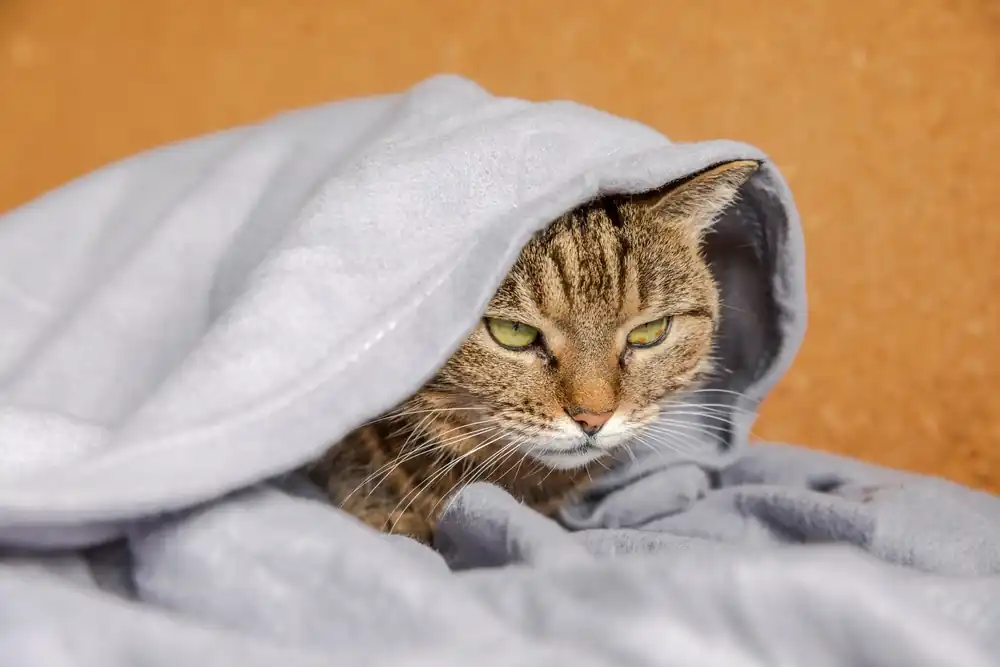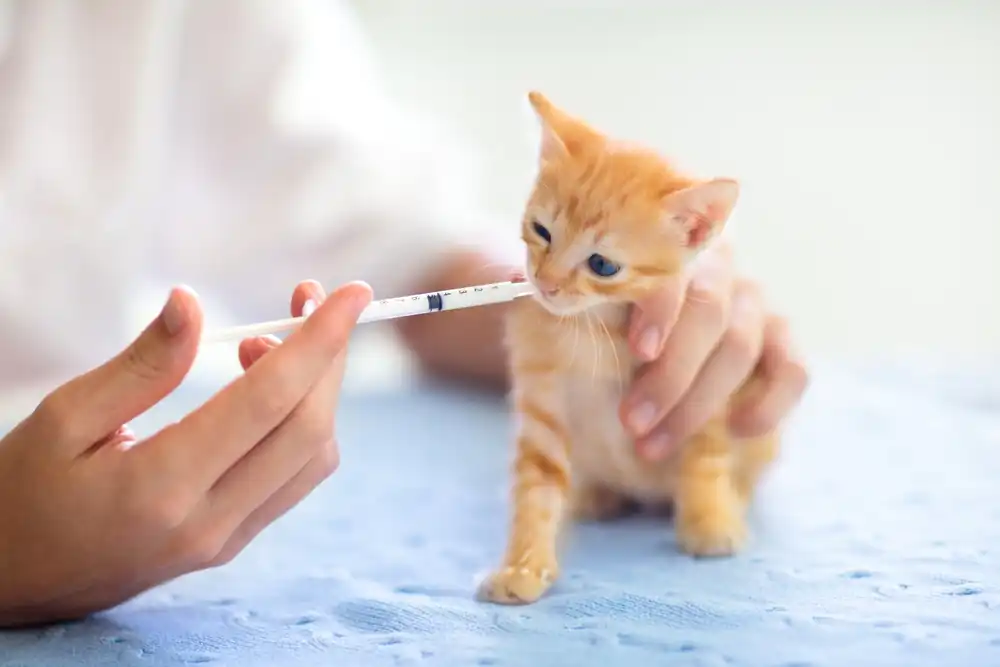Can cats catch a cold?

Yes, cats can catch colds, and their symptoms are very similar to those of humans, as they sneeze or have a runny nose.
The most common cause is a viral infection. According to statistics, about 90% of colds are caused by feline herpes virus (FHV) and feline calicivirus (FCV).
(a) Are cat colds contagious?
Just like human colds, cat colds are contagious and can be spread when a cat comes into contact with another cat that has a cold.
However, cat colds are not contagious to humans (and similarly, your cold is not contagious to your cat).
What are the symptoms of a cat cold?
If your cat has a cold, look for one or more of the following symptoms:
- Sneezing
- Discharge from the eyes or nose
- Third eyelid detachment
- Fever
- Decreased appetite
- Large weight fluctuations over a short period of time
What are the symptoms of a cold in a kitten? It’s important to take care of your kitten with nutritional supplements!
In addition to the common symptoms of sneezing, runny or stuffy nose, kittens may also develop conjunctivitis or mouth ulcers, which can prevent them from eating.
Kittens that don’t eat are more likely than adults to suffer from low blood sugar or dehydration, and may not even have the energy to fight off a cold.
For kittens with colds, nutritional supplementation is important. It is recommended that kittens be fed small, frequent meals. If the kitten is reluctant to eat at all, it can be given food supplements to help replenish the nutrients.
Will a cat’s cold clear up on its own? What should I do if it doesn’t go away? Do I need to see a doctor?
Most cat colds clear up on their own within 7-10 days. However, older cats, kittens or cats with weakened immune systems are prone to more serious complications, such as pneumonia. If you don’t treat the illness in time, it could be life-threatening. Remember to keep an eye on your cat and seek veterinary help if necessary.
How do I treat my cat’s cold? 3 Ways to Take Care of a Sick Cat!

90% of cat colds are caused by viruses, such as feline herpesvirus (FHV) or feline calicivirus (FCV). Viral colds are usually treated with supportive therapy, and in more severe cases, your veterinarian may prescribe medication to treat the cause of the cold.
- Quiet resting space: Give your cat a warm, dry environment where they can rest comfortably.
- Eat enough food and water: Cats with colds usually have a weak appetite, so pay more attention to your cat’s diet and water intake, and choose to add some appetizing snacks to increase their willingness to eat.
- Clearing eye and nose secretions: If your cat has a runny nose or nasal congestion, you can gently wipe their nose with a damp towel to help relieve their symptoms.
(a) Does my cat need antibiotics for a cold?
If your cat’s cold doesn’t go away, or even gets worse and develops complications, your veterinarian may consider antibiotics to treat the bacterial infection.
Because antibiotics are not effective against viruses, they should only be used when a bacterial infection is confirmed.
(b) Can I use human cold medicine on my cat?
Absolutely not! Human cold medicine contains Acetaminophen, an antipyretic and analgesic, which has few side effects on humans, but is highly toxic to cats.
For cats, Acetaminophen is highly toxic. Cats can be poisoned with 10 mg/kg of Acetaminophen and can be killed with 90 mg/kg of Acetaminophen.
The dosage of Pramipexole is usually 500 mg per capsule, and for cats, half a capsule is enough to kill them. Therefore, you should never give human cold medicine to your cat, and if you have a really bad cold, you should take your cat to a veterinarian for a checkup.
